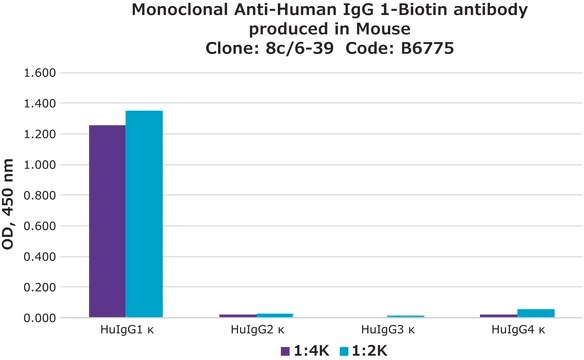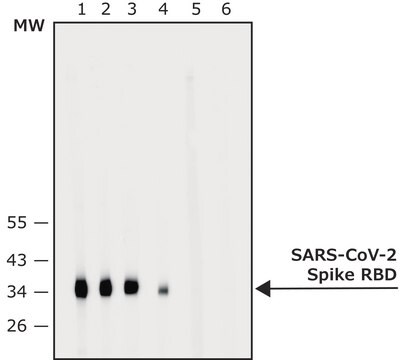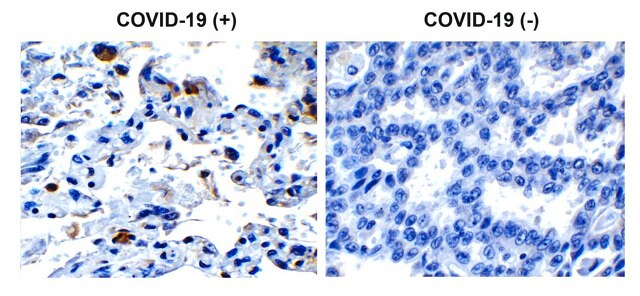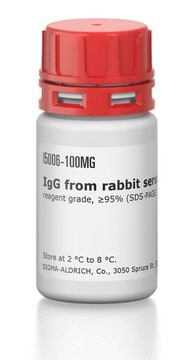B9904
Anti-Mouse IgG (Fc specific)–Biotin antibody produced in goat
affinity isolated antibody, buffered aqueous solution
About This Item
Productos recomendados
biological source
goat
conjugate
biotin conjugate
antibody form
affinity isolated antibody
antibody product type
secondary antibodies
clone
polyclonal
form
buffered aqueous solution
species reactivity
mouse
concentration
≥2 mg/mL
technique(s)
direct ELISA: 1:50,000
immunohistochemistry (formalin-fixed, paraffin-embedded sections): 1:300
western blot: 1:200,000-1:400,000 using total cell extract of HeLa cells
storage temp.
−20°C
target post-translational modification
unmodified
¿Está buscando productos similares? Visita Guía de comparación de productos
General description
Application
Biochem/physiol Actions
Other Notes
Physical form
Preparation Note
Disclaimer
¿No encuentra el producto adecuado?
Pruebe nuestro Herramienta de selección de productos.
Storage Class
10 - Combustible liquids
wgk_germany
WGK 3
flash_point_f
Not applicable
flash_point_c
Not applicable
Certificados de análisis (COA)
Busque Certificados de análisis (COA) introduciendo el número de lote del producto. Los números de lote se encuentran en la etiqueta del producto después de las palabras «Lot» o «Batch»
¿Ya tiene este producto?
Encuentre la documentación para los productos que ha comprado recientemente en la Biblioteca de documentos.
Artículos
The enzyme-linked immunosorbent spot (ELISpot ) assay enables visualization of multiple secretory products from a single responding cell. The ELISpot provides both qualitative (type of immune protein) and quantitative (number of responding cells) information.
Nuestro equipo de científicos tiene experiencia en todas las áreas de investigación: Ciencias de la vida, Ciencia de los materiales, Síntesis química, Cromatografía, Analítica y muchas otras.
Póngase en contacto con el Servicio técnico








